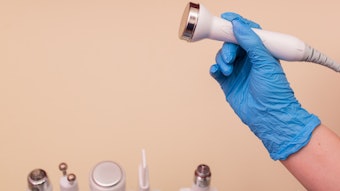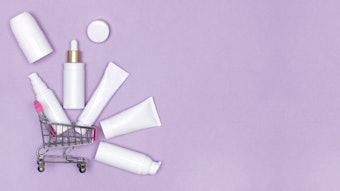
With all the hype about natural makeup and organic skin care, and with all of the alarms sounding daily about cosmetic ingredients now found to harm instead of help—why aren’t all women jumping on the natural/organic bandwagon? Simply put: they’re not ready yet—but just wait.
Just who are these brash women, still loyal to their science-based cosmetics brands, still daring to slather parabens and artificial fragrances on their faces and refusing to take heed of the headlines, or to their inner holistic beauty goddesses?
They’re about half the U.S. population of regular female beauty buyers (those who have bought beauty products in the past 12 months)—or, to be more precise, 51% of beauty buying women, according to the The Benchmarking Company’s “The Age of Naturals” Pink Report (Jan. 2008). The differences between how women who’ve (so far) shunned the natural/organic beauty buying trend and those who embrace it are intriguing both demographically and psychologically.
The Demographic and Socioeconomic Breakdown
“The Age of Naturals” posed numerous questions to women about themselves and their families. Among other facts, it showed that 52% of traditional beauty buying women are employed either full- or part-time (compared to 58% of the natural beauty buyers).
Traditional beauty buyers claim to hold slightly less stressful jobs, with 44% of traditional buyers indicating they experience “moderate to high” levels of on-the-job stress, compared with 51% of natural beauty buyers. Sixty-four percent of traditional beauty buyers have a household income of less than $50,000 per year, compared to the 54% of their natural beauty buying sisters.
Traditional beauty buyers are slightly less educated than those who claim to buy natural/organic beauty, with 33% of traditional buyers holding at least an associates degree, compared to 44% of the naturals buyers. Only 56% of traditional beauty buyers say they exercise regularly, compared with 78% of natural beauty buyers. Consequently, traditional beauty buyers tend to wear larger dress sizes than natural beauty buyers, with 41% of traditional buyers wearing a size 16+ dress, compared to 28%
of natural beauty buyers.
The Psychological Breakdown
The natural beauty buyer’s attitudes toward personal wellness mirror her consumer behavior. In The Benchmarking Company’s standard 17-question personal wellness catalog, natural/organic beauty buyers ranked every statement higher, sometimes twice as high, as traditional beauty buyers. For instance, 84% of natural beauty buyers believe the mind and body are connected for overall wellness, compared to 70% of traditional beauty buyers. Only 7% of traditional beauty buyers meditate regularly versus 19% of natural beauty buyers. Natural beauty buyers are 23% more likely to believe in the concept of inside/out beauty than traditional buyers, and nearly twice as many natural beauty buyers believe in holistic medicine.
Seventy four percent of consumers of traditional beauty products admit they don’t know the difference between a natural product and an organic product, and, of those, 54% don’t care to know. It’s not a high priority for them as they haven’t embraced the concept of “all-natural” or inside/out beauty as a lifestyle choice.
Women who normally buy natural/organic beauty products have much higher makeup and skin care aspirations than traditional beauty brand users, and they have higher expectations for natural or organic beauty product efficacy. Eighty-two percent of natural/organic beauty buyers want to look beautiful yet natural, compared with 64% of their traditional buying counterparts. Natural beauty buyers want both makeup (84%) and skin care products (84%) to be free of harmful chemicals, compared to 56% of traditional beauty buyers for makeup and 54% for skin care products.
When asked to rank how much she agrees or disagrees with natural/organic lifestyle questions on a 1–5 scale, those who normally buy natural beauty tended to post a higher agreement level to the questions. While 83% of natural buyers agreed that natural beauty products were more expensive than synthetic ones, compared to 69% of traditional beauty buyers, 54% of natural buyers also agreed that they perform as well as traditionally made brands, compared with 19% of those who predominantly buy traditional beauty products.
Traditional beauty consumers are skeptical that a product called natural or organic will work as well as traditional beauty brands, but later sections of the report revealed that they are also curious and willing to give natural beauty brands a try. For instance, when asked which type of cosmetic brand (from the choices of a mass, prestige or natural brand) is best for a woman’s skin, 50% of traditional beauty buyers said natural brands are best (with 28% believing mass were best for skin and 22% saying prestige brands were best). Still, a slight majority of traditional beauty buyers feel that mass-market brands make them look their best at 35%, with 33% believing prestige brands do the trick, and 32% believing natural brands are the most successful.
Why Not Buy More Natural/Organic Beauty Products?
“The Age of Naturals” asked traditional beauty buying women why they don’t usually buy natural or organic beauty brands, allowing them to pick all that apply from a list of possible reasons. The number one reason they gave is that it just hasn’t occurred to them to give naturals a try. With the thousands of brands on the market clamoring for both attention and disposable income, 50% of traditional beauty buyers just haven’t given it a thought yet, and 49% don’t know enough about them to make a decision. Another third aren’t automatically jumping on the natural/organic bandwagon because their current brands work just fine for them. And while these women say that natural/organic beauty brands are “too expensive” to try them (45%), surveys and focus groups show that expense will always take a back seat to the emotional reasons behind a purchase.
To continue reading this article, please click here. You will be redirected to GCI magazine's Web site.
Just who are these brash women, still loyal to their science-based cosmetics brands, still daring to slather parabens and artificial fragrances on their faces and refusing to take heed of the headlines, or to their inner holistic beauty goddesses?
They’re about half the U.S. population of regular female beauty buyers (those who have bought beauty products in the past 12 months)—or, to be more precise, 51% of beauty buying women, according to the The Benchmarking Company’s “The Age of Naturals” Pink Report (Jan. 2008). The differences between how women who’ve (so far) shunned the natural/organic beauty buying trend and those who embrace it are intriguing both demographically and psychologically.
The Demographic and Socioeconomic Breakdown
“The Age of Naturals” posed numerous questions to women about themselves and their families. Among other facts, it showed that 52% of traditional beauty buying women are employed either full- or part-time (compared to 58% of the natural beauty buyers).
Traditional beauty buyers claim to hold slightly less stressful jobs, with 44% of traditional buyers indicating they experience “moderate to high” levels of on-the-job stress, compared with 51% of natural beauty buyers. Sixty-four percent of traditional beauty buyers have a household income of less than $50,000 per year, compared to the 54% of their natural beauty buying sisters.
Traditional beauty buyers are slightly less educated than those who claim to buy natural/organic beauty, with 33% of traditional buyers holding at least an associates degree, compared to 44% of the naturals buyers. Only 56% of traditional beauty buyers say they exercise regularly, compared with 78% of natural beauty buyers. Consequently, traditional beauty buyers tend to wear larger dress sizes than natural beauty buyers, with 41% of traditional buyers wearing a size 16+ dress, compared to 28%
of natural beauty buyers.
The Psychological Breakdown
The natural beauty buyer’s attitudes toward personal wellness mirror her consumer behavior. In The Benchmarking Company’s standard 17-question personal wellness catalog, natural/organic beauty buyers ranked every statement higher, sometimes twice as high, as traditional beauty buyers. For instance, 84% of natural beauty buyers believe the mind and body are connected for overall wellness, compared to 70% of traditional beauty buyers. Only 7% of traditional beauty buyers meditate regularly versus 19% of natural beauty buyers. Natural beauty buyers are 23% more likely to believe in the concept of inside/out beauty than traditional buyers, and nearly twice as many natural beauty buyers believe in holistic medicine.
Seventy four percent of consumers of traditional beauty products admit they don’t know the difference between a natural product and an organic product, and, of those, 54% don’t care to know. It’s not a high priority for them as they haven’t embraced the concept of “all-natural” or inside/out beauty as a lifestyle choice.
Women who normally buy natural/organic beauty products have much higher makeup and skin care aspirations than traditional beauty brand users, and they have higher expectations for natural or organic beauty product efficacy. Eighty-two percent of natural/organic beauty buyers want to look beautiful yet natural, compared with 64% of their traditional buying counterparts. Natural beauty buyers want both makeup (84%) and skin care products (84%) to be free of harmful chemicals, compared to 56% of traditional beauty buyers for makeup and 54% for skin care products.
When asked to rank how much she agrees or disagrees with natural/organic lifestyle questions on a 1–5 scale, those who normally buy natural beauty tended to post a higher agreement level to the questions. While 83% of natural buyers agreed that natural beauty products were more expensive than synthetic ones, compared to 69% of traditional beauty buyers, 54% of natural buyers also agreed that they perform as well as traditionally made brands, compared with 19% of those who predominantly buy traditional beauty products.
Traditional beauty consumers are skeptical that a product called natural or organic will work as well as traditional beauty brands, but later sections of the report revealed that they are also curious and willing to give natural beauty brands a try. For instance, when asked which type of cosmetic brand (from the choices of a mass, prestige or natural brand) is best for a woman’s skin, 50% of traditional beauty buyers said natural brands are best (with 28% believing mass were best for skin and 22% saying prestige brands were best). Still, a slight majority of traditional beauty buyers feel that mass-market brands make them look their best at 35%, with 33% believing prestige brands do the trick, and 32% believing natural brands are the most successful.
Why Not Buy More Natural/Organic Beauty Products?
“The Age of Naturals” asked traditional beauty buying women why they don’t usually buy natural or organic beauty brands, allowing them to pick all that apply from a list of possible reasons. The number one reason they gave is that it just hasn’t occurred to them to give naturals a try. With the thousands of brands on the market clamoring for both attention and disposable income, 50% of traditional beauty buyers just haven’t given it a thought yet, and 49% don’t know enough about them to make a decision. Another third aren’t automatically jumping on the natural/organic bandwagon because their current brands work just fine for them. And while these women say that natural/organic beauty brands are “too expensive” to try them (45%), surveys and focus groups show that expense will always take a back seat to the emotional reasons behind a purchase.
To continue reading this article, please click here. You will be redirected to GCI magazine's Web site.










